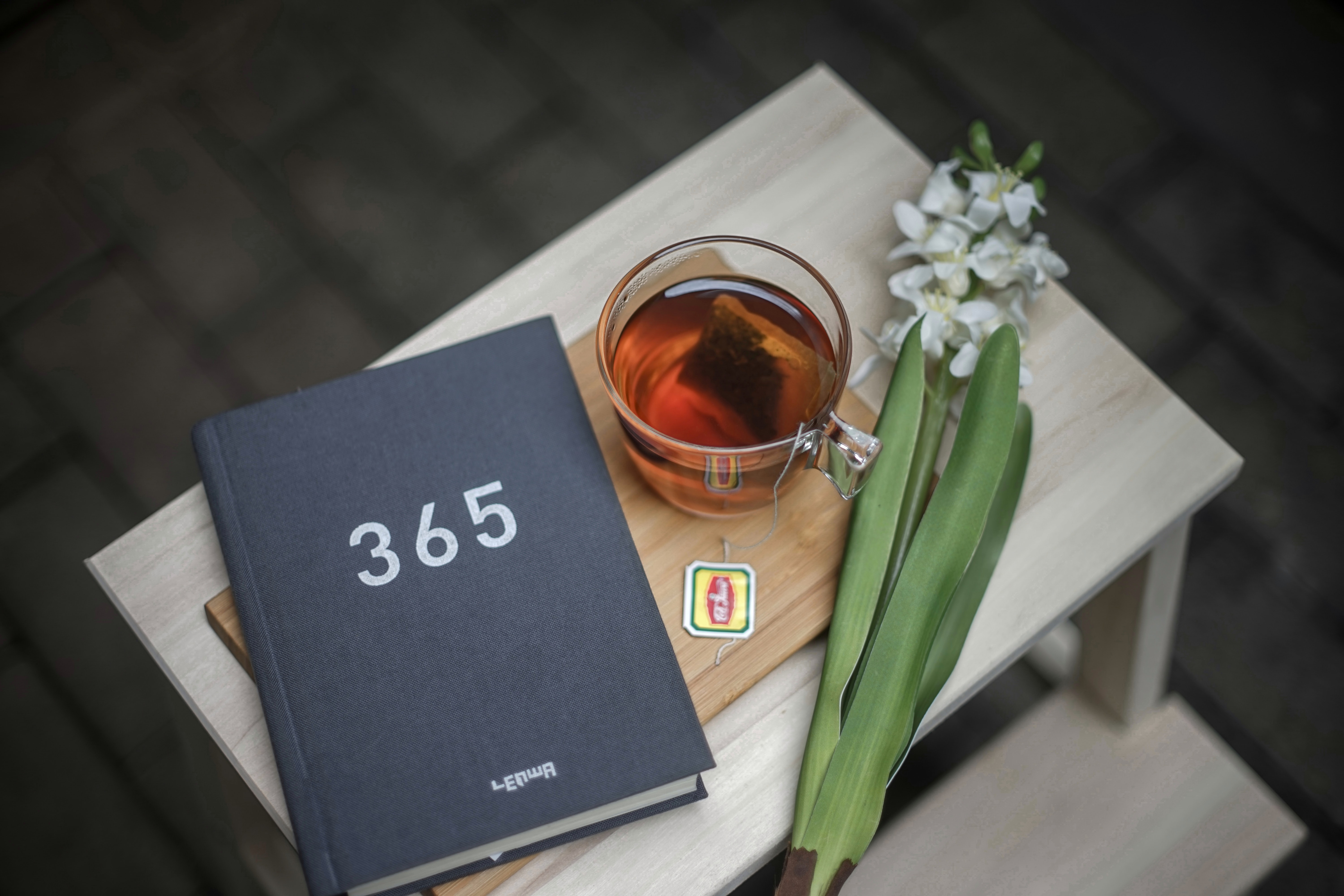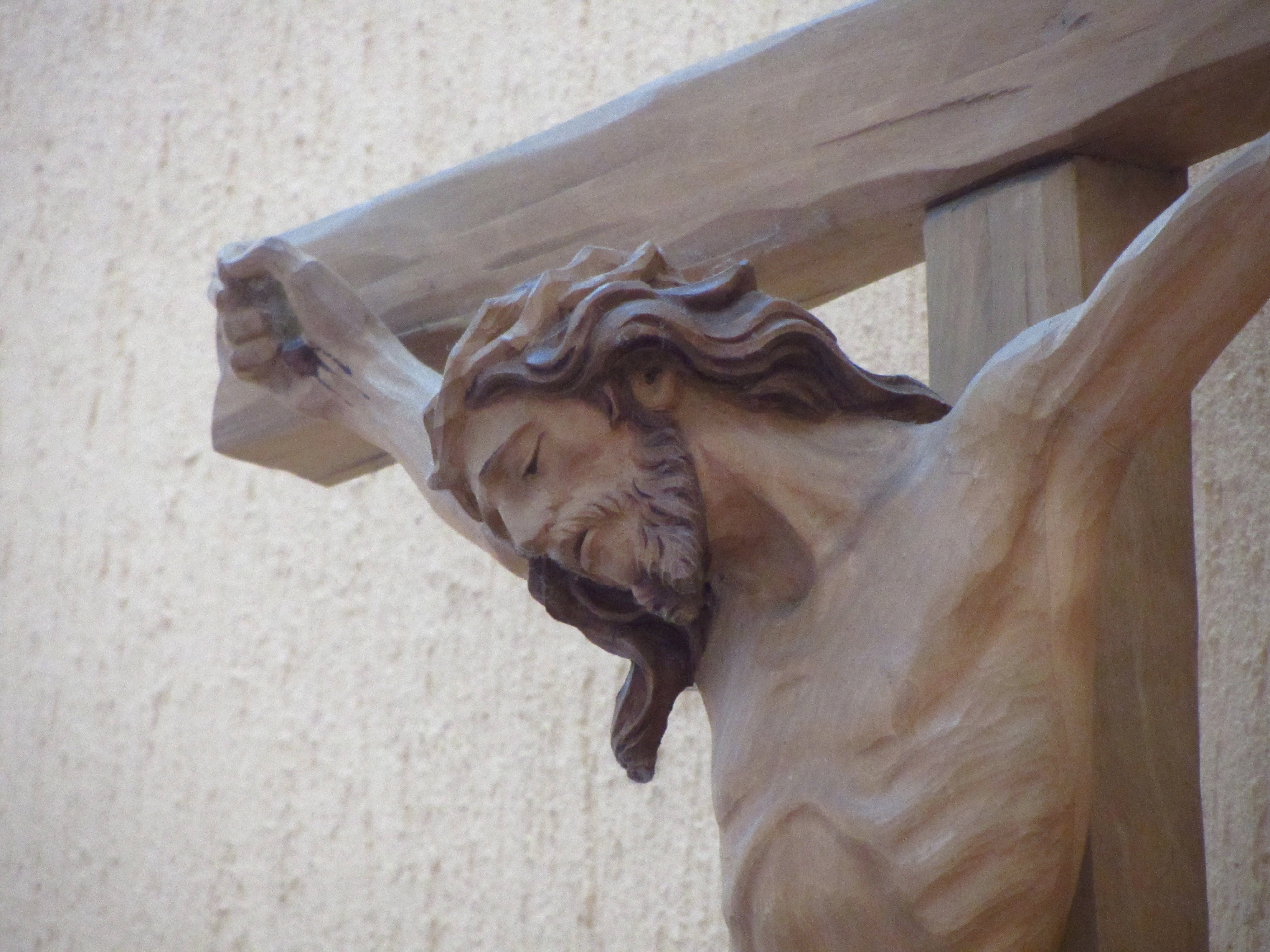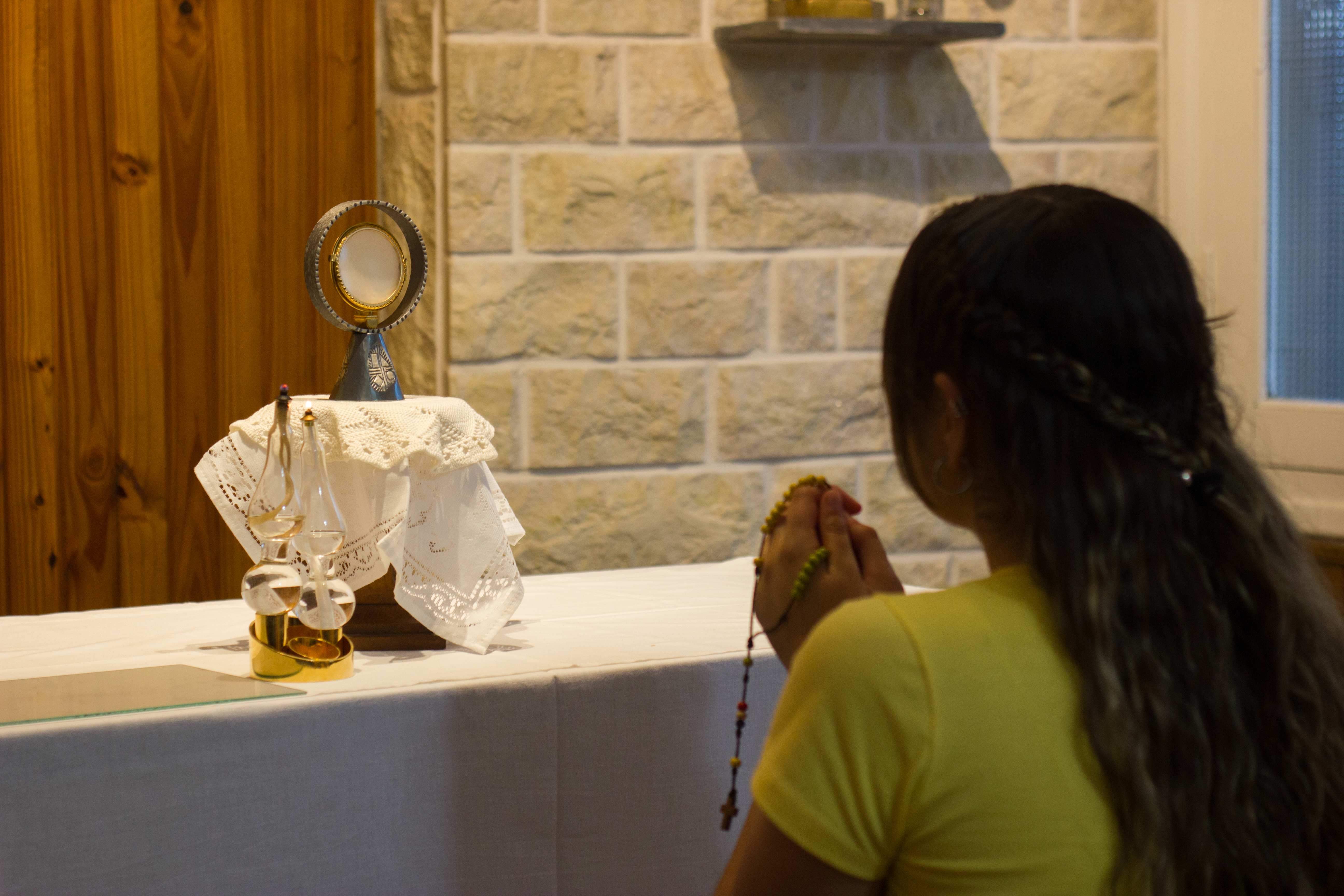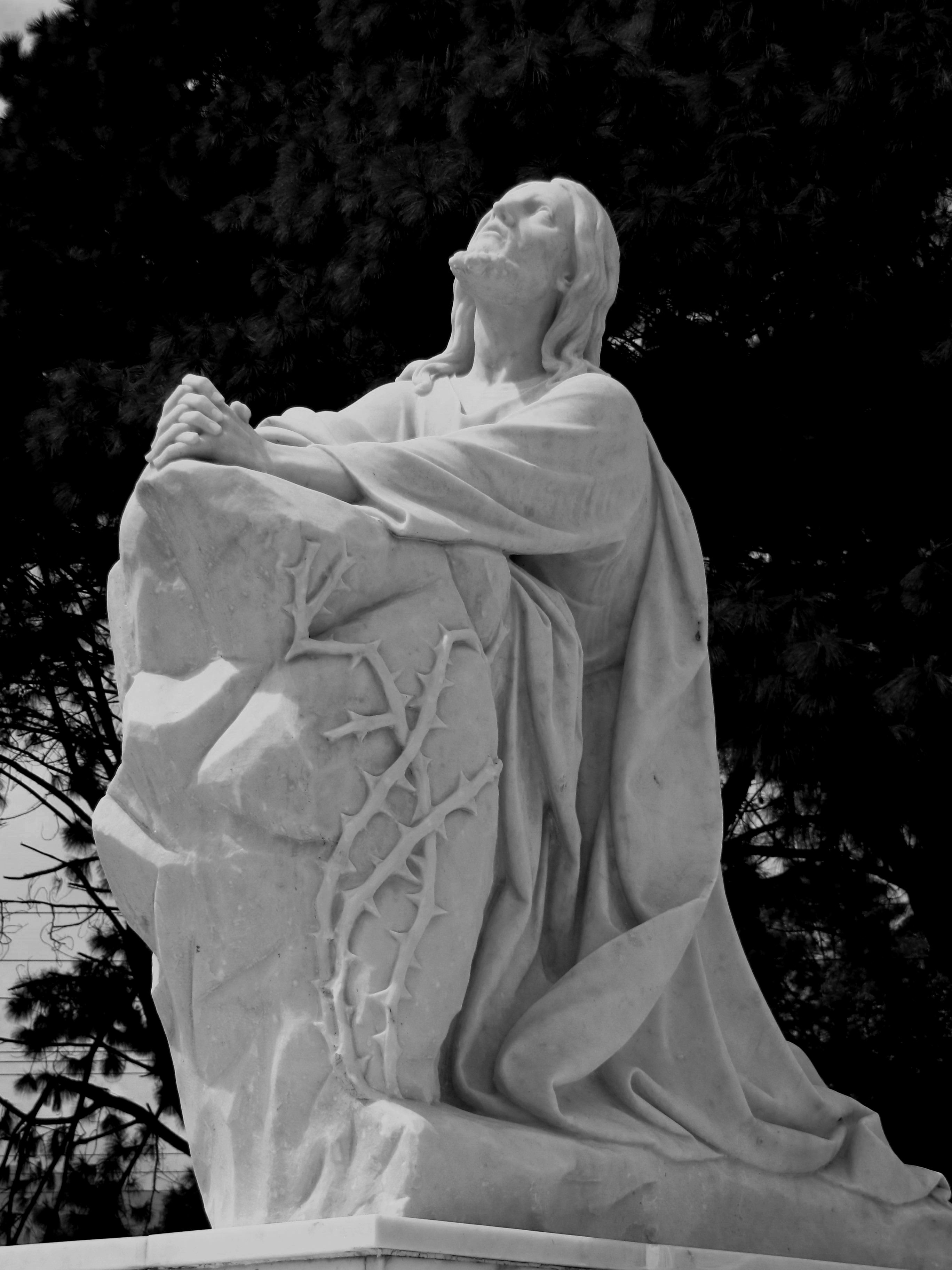Jesus goes down by the sea. And the large crowd is so eager to be near him and hear his words that he is forced to get into a boat and go a little way out to sea. He could say anything right now, command anything– storm some city, revolt against the Romans, start their own community – and most of them would do it! But Jesus does not use his authority to overthrow anything or bully anyone; instead, through the parable of the sower, he invites those who hear him to examine and change their own hearts.
Are our own hearts hardened pathways? Do we show up to hear God’s word, but that word does not resonate in us because our hearts have been allowed to harden in the same old desires and habits that keep beating their way through them? Any seed tossed on this surface just bounces around a bit and is taken away by the enemies of our soul.
Are they filled with rocky patches? Do we hear the word of God and it begins to echo within us, and we even experience the joy of recognizing what is Good and True and Beautiful? But then, because we have not allowed our heart to be softened and furrowed by vulnerability and suffering (but instead, perhaps, hardened by these things), this joy of Truth cannot be sustained within us against the demands of our ego, the culture, or temptation.
Are they strangled by brambles? Do we hear God’s word and experience the desire to conform our lives to it, but only so far? Do we, though called to the better part, give in to the lesser? The word is often welcomed up to the point at which we are called to let go of worldly pleasure, power, popularity, prestige, or prosperity (the “5 P’s,” as I call them); we have then put a limit on God’s action in our lives.
Or are our hearts rich soil? Have we allowed our hearts to be prepared by grace so that, like Mary’s, they are fertile earth in which the Word of God can be planted and come to fruition and yield a great harvest? She heard the word of God, welcomed it, said YES, and never wavered, all the way to the Cross and beyond. This is what Jesus calls us to do!
The Kingdom requires our freely given yes. Only if our hearts are rich soil and the seed can be nurtured there without limits or conditions can we truly be fruitful branches on the True Vine. Without Him, we can do nothing (John 15:5). But if we allow ourselves to be prepared by the Sower, if we remain in Him and He remains in us, he can bring forth His fruit in us, “a hundred or sixty or thirtyfold.”
Jesús baja al mar. Y la gran multitud tiene tantas ganas de estar cerca de él y escuchar sus palabras que tiene que subir a un bote y adentrarse un poco al mar. Podía decir cualquier cosa en este momento, ordenar cualquier cosa: asaltar una ciudad, rebelarse contra los romanos, comenzar su propia comunidad, ¡y la mayoría de ellos lo harían! Pero Jesús no utiliza su autoridad para derribar nada o intimidar a nadie; en cambio, a través de la parábola del sembrador, invita a quienes lo escuchan a examinar y cambiar su propio corazón.
¿Nuestros propios corazones son caminos endurecidos? ¿Nos presentamos para escuchar la palabra de Dios, pero esa palabra no resuena dentro de nosotros porque hemos permitido que nuestros corazones se endurezcan en los mismos deseos y hábitos que las siguen derrotando? Cualquier semilla arrojada sobre esta superficie rebota un poco y es arrebatada por los enemigos de nuestra alma.
¿Están llenos de áreas rocosos? ¿Escuchamos la palabra de Dios y comienza a resonar dentro de nosotros, y hasta experimentamos la alegría de reconocer lo que es Bueno y Verdadero y Bello? Pero después, debido a que no hemos permitido que nuestro corazón se ablande y surque por la vulnerabilidad y el sufrimiento (sino, tal vez, endurecido por estas cosas), esta alegría de la Verdad no puede ser sostenida en nosotros contra las exigencias de nuestro ego, la cultura, o la tentación.
¿Están estranguladas por las zarzas? ¿Escuchamos la palabra de Dios y experimentamos el deseo de conformar nuestra vida a ella, pero solo hasta cierto punto? Aunque somos llamados a la mejor parte, ¿nos rendimos a la menor? Con frecuencia la palabra es bienvenida hasta el punto en que somos llamados a dejar de lado el placer, el poder, la popularidad, el prestigio o la prosperidad mundanos (yo las llamo las “5 P’s”); entonces hemos puesto un límite a la acción de Dios en nuestras vidas.
¿O nuestros corazones son tierra fértil? ¿Hemos dejado que nuestros corazones sean preparados por la gracia para que, como el de María, sean tierra fértil en la que la Palabra de Dios pueda ser plantada y fructificar y dar una gran cosecha? Ella escuchó la palabra de Dios, la acogió, dijo SÍ, y nunca vaciló, hasta la Cruz y más allá. ¡Esto es lo que Jesús nos llama a hacer!
El Reino exige nuestro sí dado gratuitamente. Solo si nuestros corazones son tierra fértil y la semilla puede ser nutrido allí sin límites ni condiciones, podemos ser verdaderamente ramas fructíferas en la Vid Verdadera. Sin Él nada podemos hacer (Juan 15:5). Pero si nos dejamos preparar por el Sembrador, si permanecemos en Él y Él permanece en nosotros, Él puede dar en nosotros Su fruto, “al ciento, al sesenta o al treinta por uno”.
 Kathryn Mulderink, MA, is married to Robert, Station Manager for Holy Family Radio. Together they have seven children (including Father Rob), and four grandchildren. She is President of the local community of Secular Discalced Carmelites and has published five books and many articles. Over the last 30 years, she has worked as a teacher, headmistress, catechist, Pastoral Associate, and DRE, and as a writer and voice talent for Catholic Radio. Currently, she serves the Church by writing and speaking, and by collaborating with various parishes and to lead others to encounter Christ and engage their faith. Her website is www.KathrynTherese.com
Kathryn Mulderink, MA, is married to Robert, Station Manager for Holy Family Radio. Together they have seven children (including Father Rob), and four grandchildren. She is President of the local community of Secular Discalced Carmelites and has published five books and many articles. Over the last 30 years, she has worked as a teacher, headmistress, catechist, Pastoral Associate, and DRE, and as a writer and voice talent for Catholic Radio. Currently, she serves the Church by writing and speaking, and by collaborating with various parishes and to lead others to encounter Christ and engage their faith. Her website is www.KathrynTherese.com
Feature Image Credit: Jan Huber, unsplash.com/photos/FJmgfDvJPyE


 Dakota lives in Denver, CO with her husband, Ralph, and their two sons, Alfie & Theophilus. She is the Dean of Enrollment Management for Bishop Machebeuf High School where her husband also teaches. You can find Dakota at the zoo or a brewery with her family or with her nose in a book at home. For more of Dakota’s writing check out
Dakota lives in Denver, CO with her husband, Ralph, and their two sons, Alfie & Theophilus. She is the Dean of Enrollment Management for Bishop Machebeuf High School where her husband also teaches. You can find Dakota at the zoo or a brewery with her family or with her nose in a book at home. For more of Dakota’s writing check out 


 Tami Urcia grew up in Western Michigan, a middle child in a large Catholic family. She spent early young adulthood as a missionary in Mexico, studying theology and philosophy, then worked and traveled extensively before finishing her Bachelor’s Degree in Western Kentucky. She loves tackling projects, finding fun ways to keep her little ones occupied, quiet conversation with the hubby and finding unique ways to love. She works at for Christian Healthcare Centers, is a guest blogger on
Tami Urcia grew up in Western Michigan, a middle child in a large Catholic family. She spent early young adulthood as a missionary in Mexico, studying theology and philosophy, then worked and traveled extensively before finishing her Bachelor’s Degree in Western Kentucky. She loves tackling projects, finding fun ways to keep her little ones occupied, quiet conversation with the hubby and finding unique ways to love. She works at for Christian Healthcare Centers, is a guest blogger on 
 Mike Karpus is a regular guy. He grew up in Michigan’s Upper Peninsula, graduated from Michigan State University and works as an editor. He is married to a Catholic school principal, raised two daughters who became Catholic school teachers at points in their careers, and now relishes his two grandchildren, including the 3-year-old who teaches him what the colors of Father’s chasubles mean. He has served on a Catholic School board, a pastoral council and a parish stewardship committee. He currently is a lector at Mass, a Knight of Columbus, Adult Faith Formation Committee member and a board member of the local Habitat for Humanity organization. But mostly he’s a regular guy.
Mike Karpus is a regular guy. He grew up in Michigan’s Upper Peninsula, graduated from Michigan State University and works as an editor. He is married to a Catholic school principal, raised two daughters who became Catholic school teachers at points in their careers, and now relishes his two grandchildren, including the 3-year-old who teaches him what the colors of Father’s chasubles mean. He has served on a Catholic School board, a pastoral council and a parish stewardship committee. He currently is a lector at Mass, a Knight of Columbus, Adult Faith Formation Committee member and a board member of the local Habitat for Humanity organization. But mostly he’s a regular guy.
 Kathryn James Hermes, FSP, is the author of the newly released title
Kathryn James Hermes, FSP, is the author of the newly released title


 Dr. Alexis Dallara-Marsh is a board-certified neurologist who practices in Bergen County, NJ. She is a wife to her best friend, Akeem, and a mother of two little ones on Earth and two others in heaven above.
Dr. Alexis Dallara-Marsh is a board-certified neurologist who practices in Bergen County, NJ. She is a wife to her best friend, Akeem, and a mother of two little ones on Earth and two others in heaven above.
 Christine Hanus is a thwarted idealist who, nevertheless, lives quite happily in Upstate NY. She is a wife and mother of five grown children.
Christine Hanus is a thwarted idealist who, nevertheless, lives quite happily in Upstate NY. She is a wife and mother of five grown children.
 Merridith Frediani loves words and is delighted by good sentences. She also loves Lake Michigan, dahlias, the first sip of hot coffee in the morning, millennials, and playing Sheepshead with her husband and three kids. She writes for Catholic Mom, Diocesan.com, and her local Catholic Herald. Her first book Draw Close to Jesus: A Woman’s Guide to Adoration is available at Our Sunday Visitor and Amazon. You can learn more at
Merridith Frediani loves words and is delighted by good sentences. She also loves Lake Michigan, dahlias, the first sip of hot coffee in the morning, millennials, and playing Sheepshead with her husband and three kids. She writes for Catholic Mom, Diocesan.com, and her local Catholic Herald. Her first book Draw Close to Jesus: A Woman’s Guide to Adoration is available at Our Sunday Visitor and Amazon. You can learn more at 
